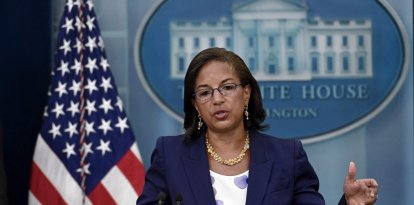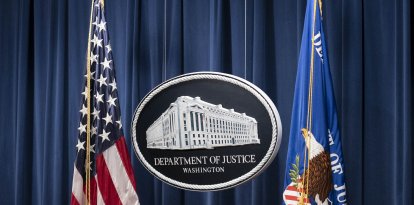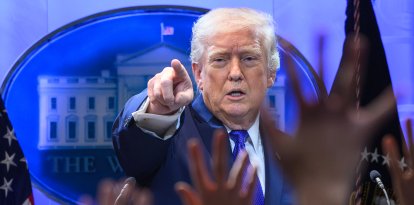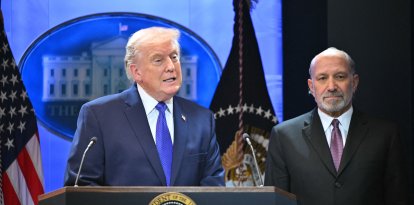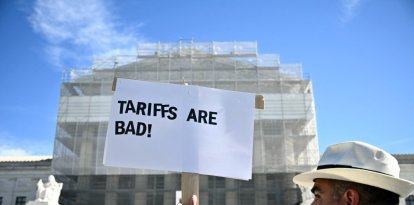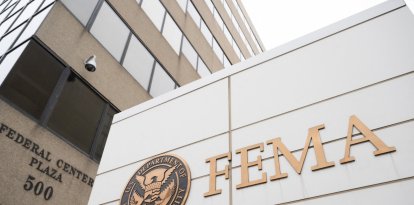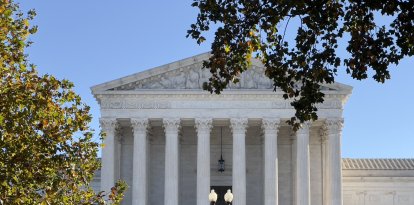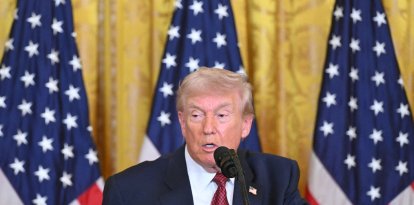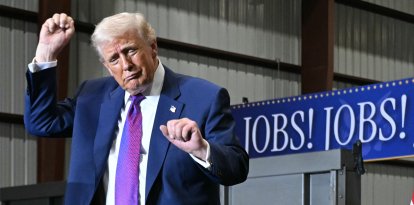Up to the Senate: the House approved a spending package of $450 billion to avoid a partial government shutdown
207 Democrats and 132 Republicans supported the more than 1,000-page legislation that would fund the departments of Veterans Affairs, Agriculture, Interior, Transportation, Housing and Urban Development, Justice, Commerce and Energy.

Cordon Press
The House of Representatives approved a $450 billion spending package on Wednesday, which includes six bills to avoid a government shutdown. Days before the March 22 deadline, Mike Johnson (R-LA) managed to get the votes to pass the bill to the Senate, which now has a few days to deliberate and prevent at least 9 departments from ceasing to function.
The legislation ended with 339 votes in favor and 85 against, with 207 Democrats and 132 Republicans within the majority. The funding package aims to fund several programs and departments through the end of the 2024 fiscal year.
The speaker of the House celebrated the inclusion of what he considered key victories for the GOP within the more than 1,000-page text, such as cuts to non-defense funds and funding for efforts to combat fentanyl.
At the same time, there are cuts to the Environmental Protection Agency and other agencies, which also coexist with the impossibility of selling part of the Strategic Petroleum Reserve to China and the prohibition on the Department of Justice to pursue or investigate parents who exercise their right to freedom of speech at local school board meetings.
"House Republicans secured key conservative policy victories, rejected left-wing proposals, and imposed sharp cuts to agencies and programs critical to President Biden's agenda," Johnson declared before the vote.
The legislation now heads to the Senate, where Chuck Schumer (D-NY) and Mitch McConnell (R-KY) hope to muster the votes before March 22. The majority leader even announced that he plans to hold the vote this week with "time to spare before the deadline."
"It took a lot of bipartisan cooperation to reach this agreement on these six appropriations bills. Now it will take more bipartisan cooperation to finish them," Schumer added.
If the Senate does not reach an agreement before the deadline, the following departments would cease to function: Veterans Affairs, Agriculture, Interior, Transportation, Housing and Urban Development, Justice, Commerce and Energy.
What does a partial government shutdown mean?
Unlike a total government shutdown, which applies to all federal government offices, a partial shutdown only affects specific departments for which an agreement has not been reached for their financing. Therefore, only those departments will stop working, and their employees will not receive their salaries.
"Non-essential and unfunded activities of impacted government agencies would also be shut down causing additional disruption. Government contractors typically see additional disruption. Historically, government shutdowns have been brief, in part, because the economic impact can be severe. Even a delayed paycheck can be a major disruption to many households," Forbes explained.













